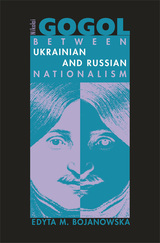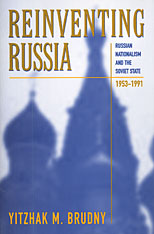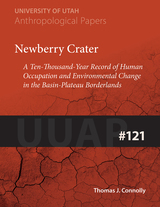
No other writer captured the fraught relations between Ukrainian and Russian nationalisms with as much complexity and lasting relevance as Nikolai Gogol. This pathbreaking book illuminates the deep cultural stakes of today’s geopolitical conflict.
The nineteenth-century author Nikolai Gogol occupies a key place in the Russian cultural pantheon as an ardent champion of Russian nationalism. Indeed, he created the nation’s most famous literary icon: Russia as a rushing carriage, full of elemental energy and limitless potential.
In a pathbreaking book, Edyta M. Bojanowska topples the foundations of this russocentric myth of the Ukrainian-born writer, a myth that has also dominated his Western image. She reveals Gogol’s creative engagement with Ukrainian nationalism and calls attention to the subversive irony and ambiguity in his writings on Russian themes. While in early writings Gogol endowed Ukraine with cultural wholeness and a heroic past, his Russia appears bleak and fractured. Russian readers resented this unflattering contrast and called upon him to produce a brighter vision of Russia. Gogol struggled to satisfy their demands but ultimately failed.
In exploring Gogol’s fluctuating nationalist commitments, this book traces the connections and tensions between the Russian and Ukrainian nationalist paradigms in his work, and situates both in the larger imperial context. In addition to radically new interpretations of Gogol’s texts, Bojanowska offers a comprehensive analysis of his reception by contemporaries.
Brilliantly conceived and masterfully argued, Edyta Bojanowska fundamentally changes our understanding of this beloved author and his place in Russian literature.

What caused the emergence of nationalist movements in many post-communist states? What role did communist regimes play in fostering these movements? Why have some been more successful than others? To address these questions, Yitzhak Brudny traces the Russian nationalist movement from its origins within the Russian intellectual elite of the 1950s to its institutionalization in electoral alliances, parliamentary factions, and political movements of the early 1990s.
Brudny argues that the rise of the Russian nationalist movement was a combined result of the reinvention of Russian national identity by a group of intellectuals, and the Communist Party's active support of this reinvention in order to gain greater political legitimacy. The author meticulously reconstructs the development of the Russian nationalist thought from Khrushchev to Yeltsin, as well as the nature of the Communist Party response to Russian nationalist ideas. Through analysis of major Russian literary, political, and historical writings, the recently-published memoirs of the Russian nationalist intellectuals and Communist Party officials, and documents discovered in the Communist Party archives, Brudny sheds new light on social, intellectual, and political origins of Russian nationalism, and emphasizes the importance of ideas in explaining the fate of the Russian nationalist movement during late communist and early post-communist periods.
READERS
Browse our collection.
PUBLISHERS
See BiblioVault's publisher services.
STUDENT SERVICES
Files for college accessibility offices.
UChicago Accessibility Resources
home | accessibility | search | about | contact us
BiblioVault ® 2001 - 2024
The University of Chicago Press









